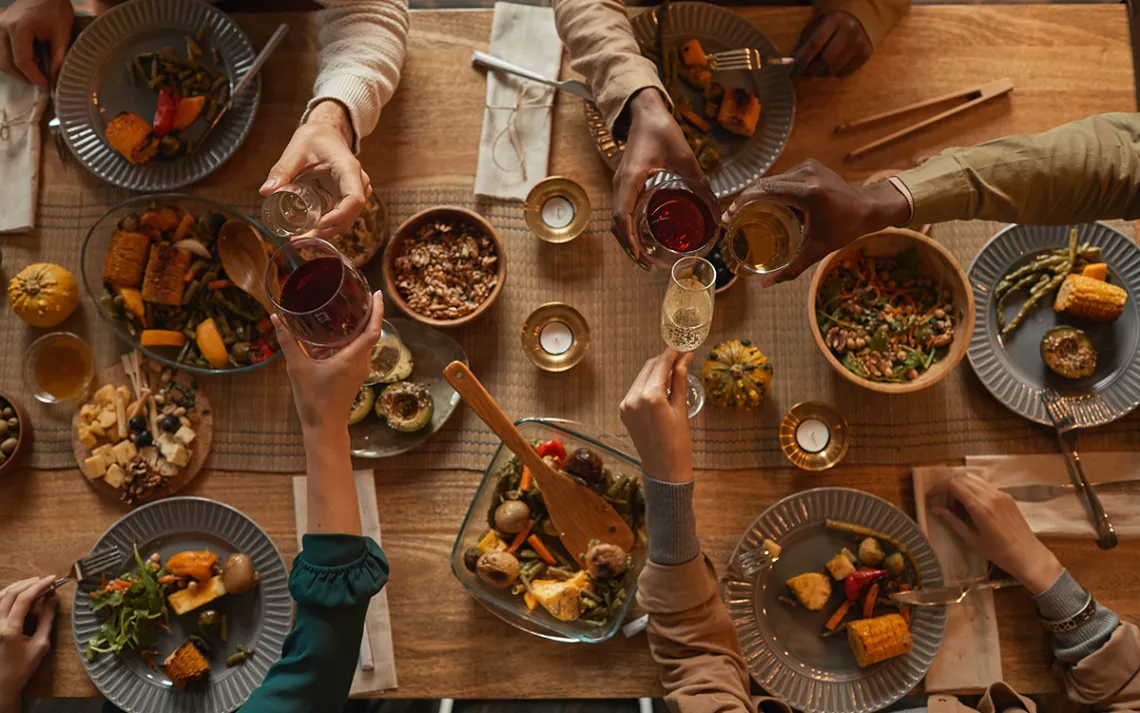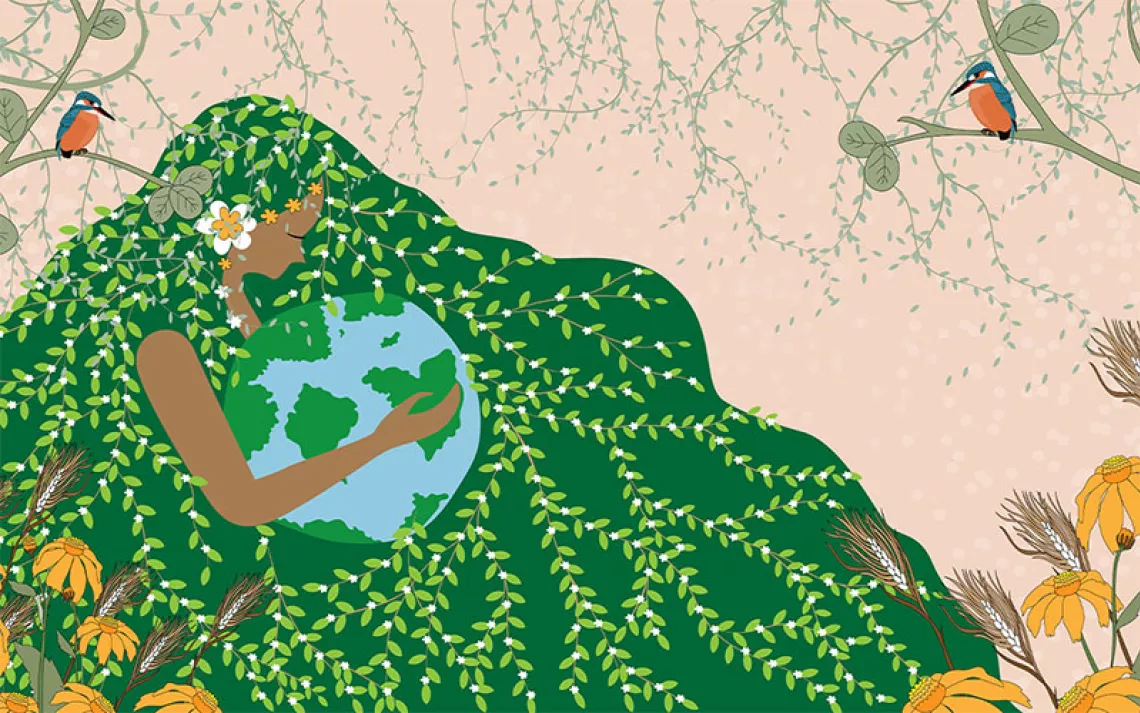Thanksgiving Is Complicated. Here’s Why I Celebrate Anyway.
The history’s all wrong—but I find meaning in the myth

Photo by SeventyFour/iStock
I know Thanksgiving is almost here when a bout of historical truth-telling takes over my newsfeed. It has become a reliably modern American tradition to debunk the myth of a peaceful Thanksgiving feast—a harvest meal to which whites invited their Wampanoag neighbors. “Everything you learned about Thanksgiving is wrong,” proclaimed The New York Times in just one such story, alongside tips for baking pies and roasting turkeys.
They’re a vital corrective to the whitewashed history I learned in my suburban elementary school. Back then it was all handprint turkeys and Pilgrim hats, with no mention at all of the settlers’ violence.
Yet I do celebrate Thanksgiving. I relish it as the sole American holiday focused on gathering, and as a largely homemade experience preceding December’s consumerist frenzy. It is a celebration that strikes me as even more precious at a time when America otherwise seems to be straining apart at the seams.
Then there’s the food. Each year, I look forward to the stuffing and the pumpkin pie, too-sweet baked yams, and extra-tart cranberry sauce. For me such dishes matter not just for the pleasure I find in eating them, but because their flavors are linked so powerfully to memory. There are few occasions in the United States with such predictable menus; old-fashioned gravy pooled in mounds of mashed potatoes evokes Thanksgivings past, times when I sat down alongside loved ones whose chairs are now empty.
I appreciate that classic Thanksgiving menus center ingredients, including potatoes, cranberries, squash, and wild rice, that are borne of Indigenous farming and ingenuity. In the United States, Native foodways are left unrecognized too often, part of a broader erasure of nonwhite legacies. But for me, gathering such treasures onto a heavily laden table recalls the thanks—agricultural, cultural—I owe to this land’s first and ongoing stewards.
While giving thanks for food is a nice idea, it’s also an old-fashioned phrase, one that’s rare beyond the Thanksgiving season. Celebratory harvest festivals are a regular part of life for much of the world, but many in the United States are largely disconnected from the seasonal rhythms of farming. Fewer Americans than ever before live on farms; that shift from rural life, coupled with the marginalization of farmworkers, especially the estimated 50 percent of hired crop workers who are undocumented, has rendered a country where the agricultural labor our meals require can be nearly invisible.
In my chosen home of Vermont, traditional lands of the Abenaki people, Thanksgiving arrives as a coda to the growing season. By late November, orchards are picked over, fields gleaned, and gardens put to bed, and cooking the foods they yield honors my neighbors—regardless of documentation status or country of origin—who work to cultivate and tend the land.
I know that all this could happen without Thanksgiving, and its annual echo of America’s tragedies, both historical and modern. Why not throw it out altogether? Since 1970, the United American Indians of New England have marked November 24 as a National Day of Mourning, gathering in Plymouth not for turkey and pie but to commemorate the historical and ongoing oppression of this land’s Native peoples.
Perhaps if a harvest meal of old-fashioned recipes matters so much, I should start fresh instead, invent a new harvest holiday and invite my family. We could keep the green bean casseroles while chucking Thanksgiving onto the compost pile. That is possible. But old traditions have a certain staying power. I worry that giving up Thanksgiving would result in a day stripped of its difference.
And while the Thanksgiving story is a cover-up, today we can choose to define the holiday in a way that centers and restores our truths to the myth. To me, that means a day dedicated to sharing across cultural difference, to celebrating our aspirations without erasing hard historical truths. It means breaking bread with friends but also inviting in strangers. It means meeting hunger, in all its forms, with generosity.
Across the country this Thanksgiving, Americans are doing just that: Some are delivering meals to refugees; others are volunteering to serve those without homes. Plant-based holiday dinners are replacing meat-heavy dishes as many Americans consider their meals’ impact on the environment; home cooks of diverse backgrounds strive to honor Native foodways by experimenting with recipes from Indigenous chefs.
Taking seriously the idea that Thanksgiving means giving thanks for food requires concrete action on behalf of the people who grow it. This holiday is a great time to support farmworkers’ resource groups such as Vermont-based Migrant Justice, whose Milk with Dignity program endeavors to bring about better conditions for dairy workers. Each year at Sierra, we also strive to make our readers’ holiday dinner tables the sites of crucial conversations about climate justice, democracy, and the positive changes we’re grateful for. You might have a different take on how to mark this day. For me, Thanksgiving remains a day to celebrate.
 The Magazine of The Sierra Club
The Magazine of The Sierra Club



